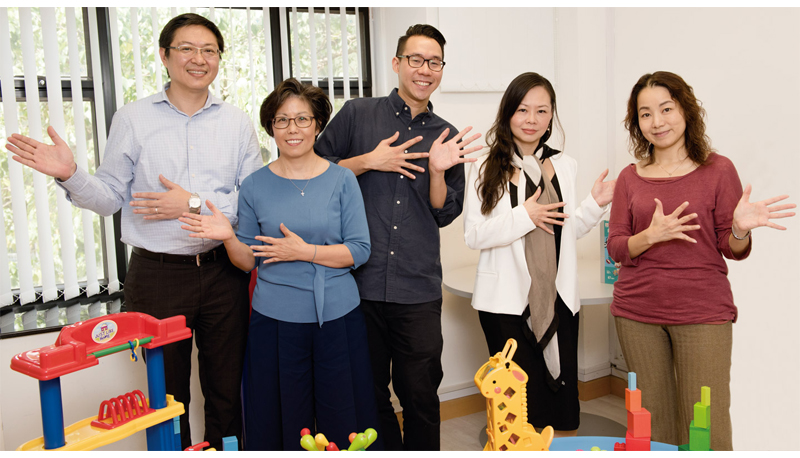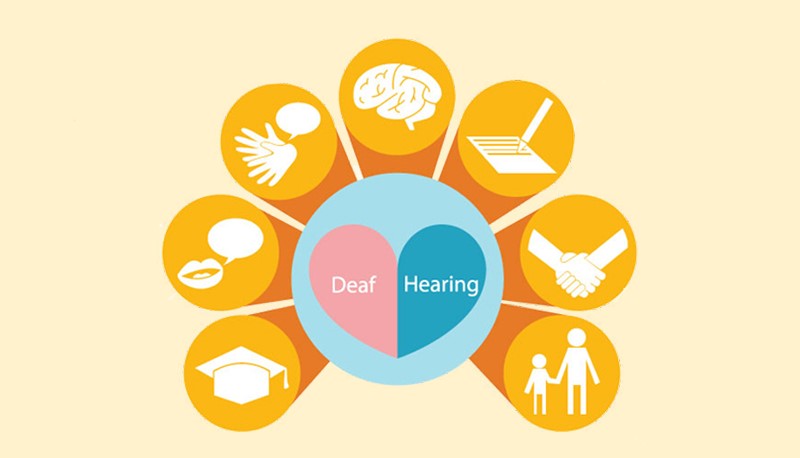
Global Award for CUHK Deaf Education Programme

The SLCO programme headed by Professor Gladys Tang (2nd left) contributes towards mainstream inclusive education for the deaf.
A programme launched by CUHK to help deaf and hard of hearing children learn in regular classroom settings has received the Zero Project 2020 – Innovative Practice Award on Education from the Essl Foundation for its distinguished contributions towards mainstream inclusive education for the deaf.
The Sign Bilingualism and Co-enrolment in Deaf Education (SLCO) programme is led by a team headed by Professor Gladys Tang of CUHK’s Centre for Sign Linguistics and Deaf Studies of the Department of Linguistics and Modern Language. Through the SLCO programme, deaf and hard of hearing children can learn together with hearing children in a bilingual teaching environment with signed and spoken languages.
Learning sign language helps deaf and hard of hearing children become more articulate by giving them access to classroom information in a bilingual and barrier-free environment. At the same time, hearing students participating in the project have the opportunity to become sign language experts, helping them build empathy and acceptance of the deaf.

The SLCO programme brings numerous benefits to both deaf and hearing children.
Zero Project 2020 Awards Programme Recognises SLCO
In support of the Articles of the UN Convention on the Rights of Persons with Disabilities, the Zero Project every year recognises those organisations that have developed innovative practices that improve the quality of life for people with disabilities. The theme of the Zero Project this year was ‘Education’. A total of 436 nominations was received from 79 countries, out of which 75 winning projects were selected. The SLCO programme was the only winning project in Hong Kong and mainland China.
The work of the team shows that bilingual education can promote effective communication and friendships between deaf and hearing students. Professor Gladys Tang said, ‘At present, many people still have misconstrued myths about sign language, which has led to long-term misunderstandings in the education of deaf children. After years of hard work, we hope to change these views so that more people can appreciate how sign language as a fully-fledged visual language can help children’s language and cognitive development in education.’
Established as an inclusive education project, the ratio of students in the SLCO programme is usually one deaf or hard of hearing child to three or four hearing children in each class. A hearing teacher and a deaf teacher teach in oral and sign languages collaboratively, so that deaf and hard of hearing children and hearing students can learn bilingually in sign language and oral language.
The SLCO programme has been gradually introduced in kindergartens, primary and secondary schools in Hong Kong, benefiting more than 500 people, including children with severe hearing loss. The programme is also being expanded to neighbouring places such as Singapore as well as Macao and Quzhou in mainland China.
Read more: